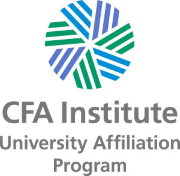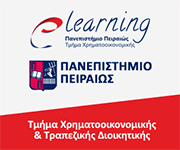Management Accounting
Management Accounting
–
Teacher: –
ECTS: 7.5
Course Type: Elective
Semester: Fall
Teaching Hours: 4
Prerequisites:
Course Scope
The purpose of the course is to introduce students to the science of Managerial Accounting, starting with its definition and emphasizing its role and importance in terms of decision-making by the Management of a business/organization but also in terms of achieving the best/most efficient mode of operation.
Specific concepts of management accounting and cost accounting are analysed. Terminology, concepts and categories of costs, costing methods, ways of cost analysis, profit planning, estimating standard costs and relative costs for decision-making, as well as the activity-based costing approach are presented.
Sections related to primary elements of costing and production cost calculation are covered (direct labor costs, direct and indirect materials, General Industrial Expenses), while at the same time, through practical applications, the calculation of period industrial costs, costs of products, production (work) in progress and of cost of goods sold are illustrated. Basic approaches to product pricing are presented, as is the inventory valuation module.
Course Outline
-Types of Accounting. Introduction to Management Accounting and correlation with Cost Accounting. Distinguish between Management Accounting and Financial Accounting and display their main differences.
– Concept of Costing. Definition of cost, output and expense. Cost analysis in financial statements. Cost distinctions and categories.
– Analysis of primary costing data. Labour cost. Direct and Indirect materials. General industrial expenses. Production calculation and estimation in progress.
– Analysis of the project-order costing method and continuous-production costing. Similarities and differences between the two methods. Activity-based costing and business decision support.
– Full absorption costing and variable costing. Comparison of results between costing methods. Custom production costing and continuous production costing.
– Analysis and correlation of costs – production volume – profit. Breakeven point (breakeven) analysis. Choice of business cost structure.
– Budgets. Budget targets. Discriminations and restrictions. Drafting and budgeting framework.
– Pricing policy design and correlation with cost method. Introduction to the concept of standard costing. Making management decisions.
– Costing of investment plans. Investment budget. Cash flow analysis. Discounted cash flows. Net present value method. Internal rate of return method.
– Management and decision-making methods. Financial ways of measuring business performance. Increase productivity, efficiency and profitability by minimizing costs. Analysis of reward and incentive systems.
Suggested Reading
- E-class training material and exercises.
- Datar, S., and Rajan M., Horngren’s Cost Accounting: A managerial Emphasis, 16th edition, Pearson education, 2019 (Greek translation, Broken Hill Publishers)
- Miller-Nobles T.L., Mattison B.L., and Matsumura E.M. (2021), Horngren’s Management Accounting, (Greek Translation: Broken Hill Publishers)
- Needles B., Power, s M., and Crosson, S. Principles of Accounting, 12th Edition, Cengage Learning, 2017 (Greek translation, Broken Hill Publishers)




